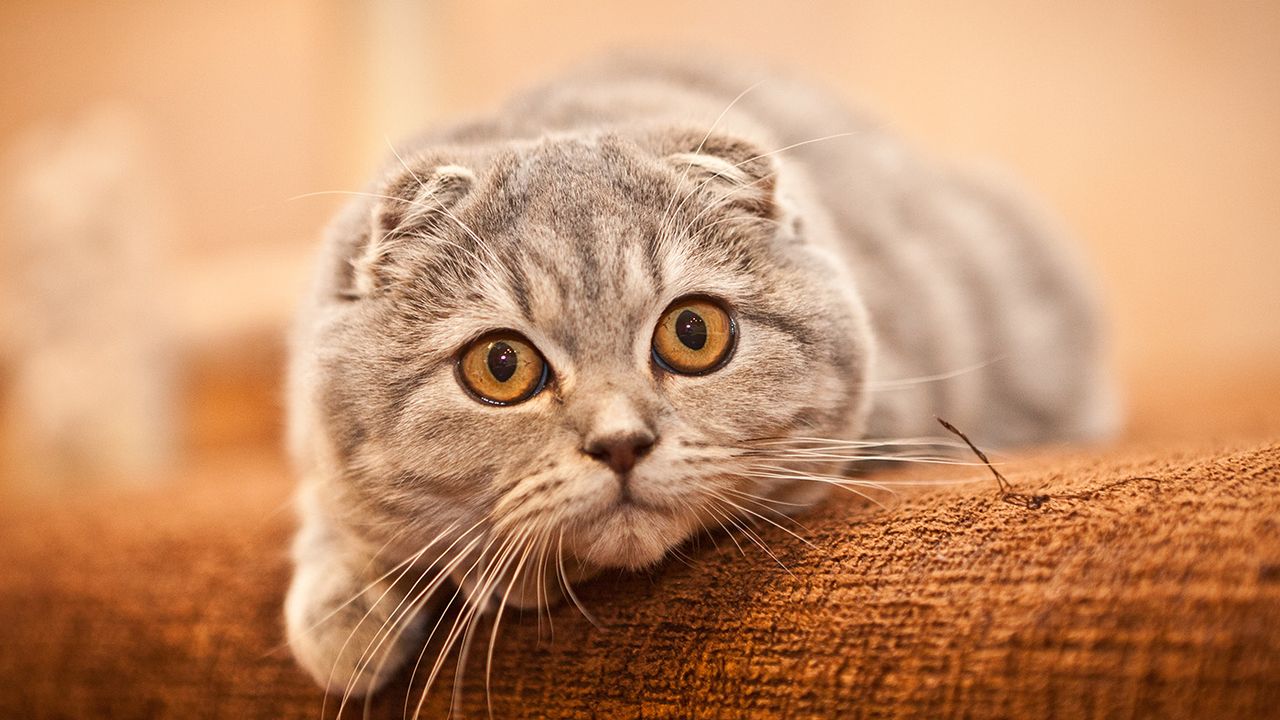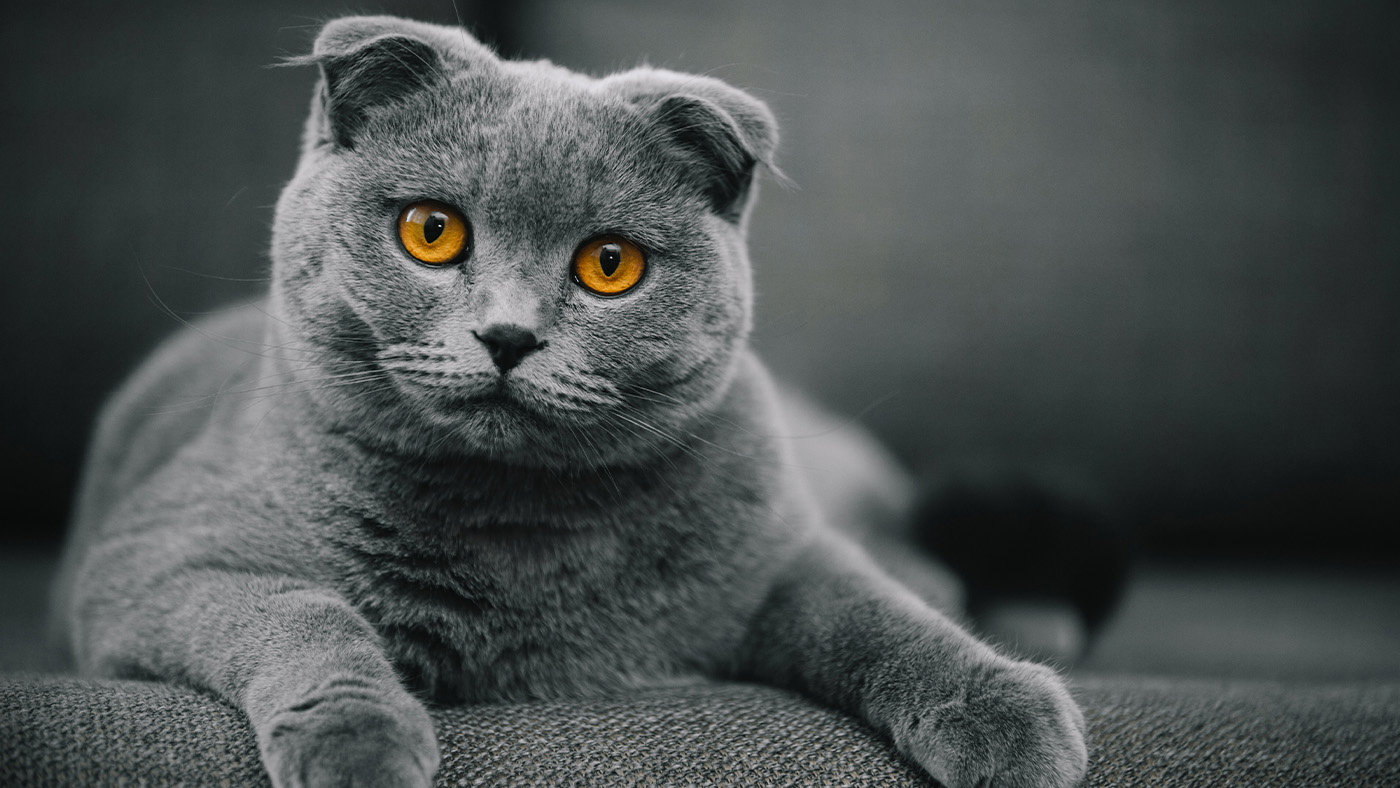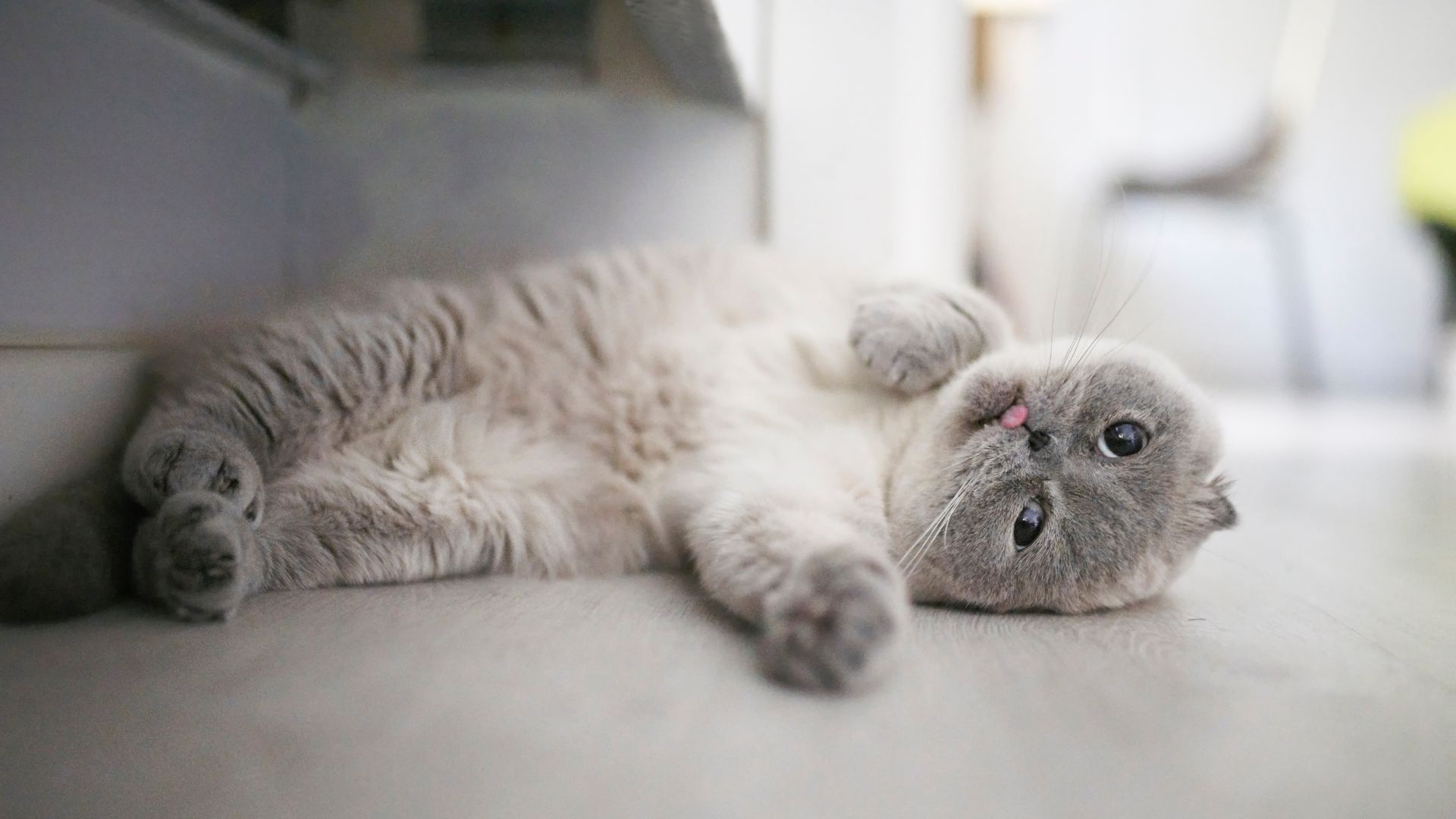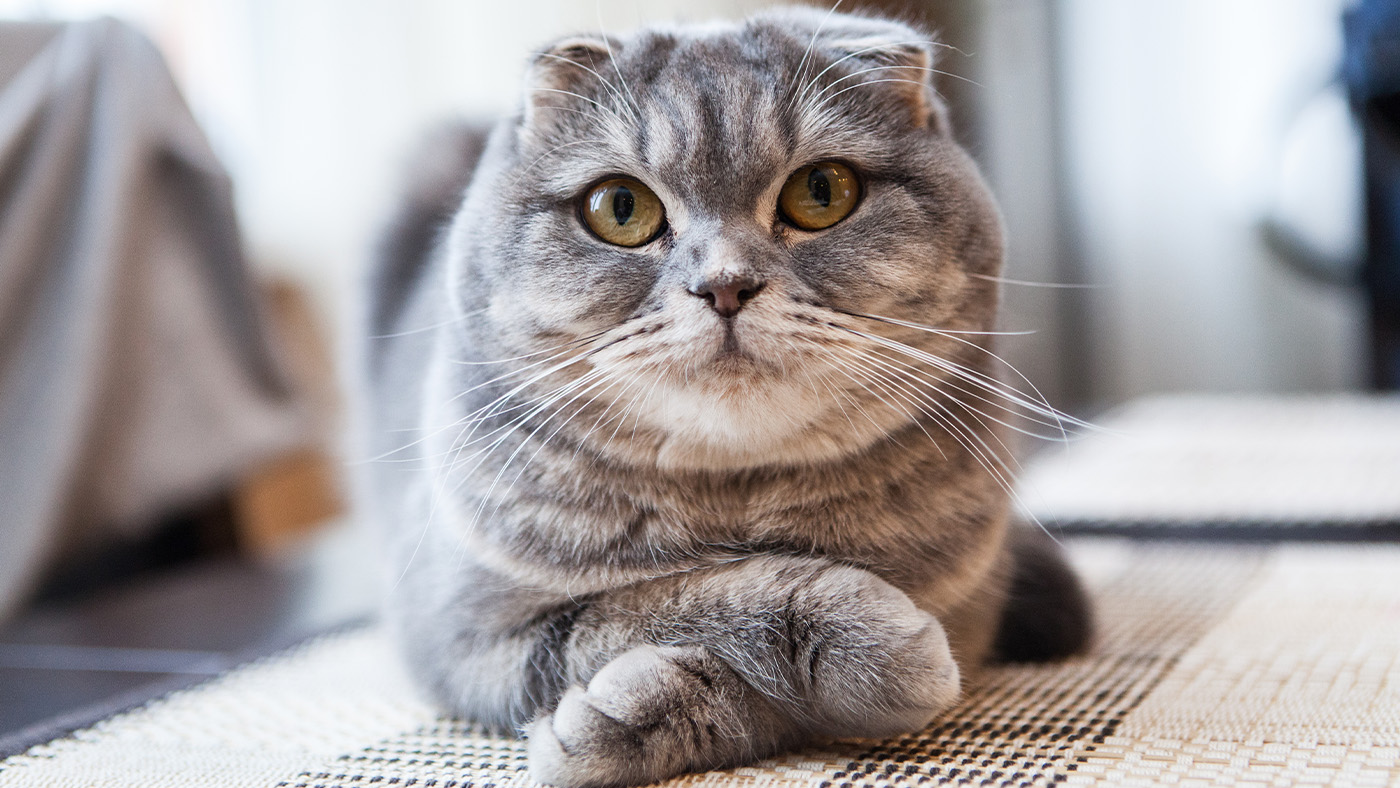

Other names: Foldy or Lops
Life expectancy: 13–16 years
Size: 8 –10 inches (height), 14–16 inches (length), 9–13 lb (weight)
Coat: blue, silver, brown, black or white; patterns include tabby, solid, bicolor or tricolor.
Eye colour: blue, green, teal, copper, gold or hazel
Temperament: sweet-natured, devoted, quiet, easygoing and playful
Origin/native country: Scotland, UK
Scottish Folds are one of the most unique-looking cat breeds you can come across. Often depicted by their soft grey coat, owl-shaped eyes and folded ears, the latter comes about due to a genetic mutation that causes the ear cartilage to bend forward.
While this latter feature often makes them stand out from the rest of the cat crowd, it’s this abnormality that surrounds them in controversy, as it can cause them to have issues with cartilage elsewhere around the body, such as the joints. At present, the British Small Animal Veterinary Association (BSAVA) and International Cat Care consider the breeding of Scottish Folds as “unethical”.
That said, if you happen to adopt these cuddly creatures, they are very easy-going cats, highly intelligent, and easy to train. To discover more about this fascinating breed, we spoke with veterinarian Dr Rebecca MacMillan about this breed’s needs and the health concerns to watch out for.
Are Scottish Fold cats hypoallergenic?
No, Scottish Fold cats are not hypoallergenic. That’s because they produce the same amount of allergy-triggering protein as other cat breeds, and they shed moderate amounts of fur throughout the year.
Therefore, if you are allergic to cats and looking for a fur baby to add to your family it’s well worth choosing from the list of hypoallergenic cat breeds or picking a cat breed that doesn’t shed as much, as this will help to reduce the amount of allergens in your home.
Of course, no cat can truly be hypoallergenic or allergen-free because all felines produce the Fel d1 protein, which is the main allergy-triggering culprit. However some cats are considered to be hypoallergenic because they produce less of this protein or shed-minimally when compared to other breeds.
Are Scottish Fold cats rare?
Despite the fact that Taylor Swift is the very proud pet parent of two Scottish Folds, they are relatively rare.
“Not all kittens born will show the characteristic folded ears,” explains Dr MacMillian. “Sources state that only around 50% of Scottish Fold kittens will have the desired look.
“There are also welfare concerns around breeding this cat, due to their associated health issues, which further limits their numbers.”
Can Scottish Fold cats be left alone?
Just like the British Shorthair, these cats can be left alone for short periods of time. “However, they do love human company and attention, so longer lengths of time could be stressful for them,” Dr MacMillan highlights. “Some Scottish Folds may develop separation anxiety if left for too long, so you will need to make provisions for this sociable cat if you ever need to take a trip away.”
Thankfully, when it comes to separation anxiety in cats there are a range of things you can do to help your kitty cope when you go out.
For example, the best interactive cat toys can help keep them entertained for an hour or two. While leaving a calm radio station or TV channel on when you’re out can help, too.

How much grooming does a Scottish Fold cat need?
Scottish Folds have short, dense fur and require minimal grooming. Therefore, Dr MacMillan says brushing them once or twice a week should be enough to keep their coat in order.
“You will also need to think about preventative oral care from a young age, as with any breed of cat,” Dr MacMillan says.
How much exercise does a Scottish Fold need?
Exercise-wise, these cuddly creatures have a penchant for snuggling up with their humans on the couch.
But they will still need around 30 minutes of exercise a day to help keep them happy and healthy.
Scottish Fold health problems
Sadly, the Scottish Fold is often not a very healthy cat breed, which is why there are numerous ethical concerns about its breeding.
As of 2025, the International Cat Care and British Small Animal Veterinary Association (BSAVA) state that the breeding of Scottish Folds is “unethical” and they are raising awareness of Scottish Fold suffering.
“They have a genetic mutation affecting their cartilage, which is what gives them their folded ears,” Dr MacMillan explains. “However, this same abnormality is known as osteochondrodysplasia and it also causes issues with cartilage elsewhere around the body, such as the joints.”
Due to this, many Scottish Folds will develop painful joint disease, often at quite a young age, Dr MacMillan highlights.
“These cats can suffer from abnormal bone development, skeletal abnormalities, and arthritis,” the vet says. “Even Scottish Fold kittens without folded ears are still much more likely than other cat breeds to suffer from these problems. This can have severe welfare implications for these cats.
“The only Scottish Fold that I have seen in recent years was already showing signs of pain and mobility difficulties at around 12 months of age. For some kittens, problems can start as early as seven to eight weeks.”
Unfortunately, Scottish Folds can also suffer from polycystic kidney disease (PKD), which is one of the most common illnesses in cats.
“Kittens can be born with cysts in their kidneys that gradually increase in size over time,” Dr MacMillan says. “This can lead to incurable kidney failure.”

How much does a Scottish Fold cost?
Due to their rarity, Scottish Fold kittens will set you back anywhere between $1,000–5,000, but this price will depend on the kitten’s pedigree, whether or not they have folded or straight ears and the breeder you buy from.
This makes a Scottish Fold one of the most expensive cat breeds of all time and puts them in the same price bracket as a Persian cat.
If you’re hoping to become the pet parent of a similar-looking cat, an American Curl would be a more affordable kitty, as this feline is priced anywhere between $1,000–3,000.
Should I get a Scottish Fold?
In Dr MacMillan’s opinion, the expert wouldn’t recommend buying a Scottish Fold to anyone.
“There is a very high chance of your kitten developing painful and debilitating joint issues because they are being bred for style rather than fitness,” she says.
“If you do decide to purchase a Scottish Fold then you must have the means to pay for their veterinary care and pet insurance, as many of these cats will require ongoing treatment for their disease.”
Read next: Facts about Scottish Fold cats
Edited by Georgia Guerin.







